
The Fiji Institute of Pacific Health Research (FIPHR) is an integrated virtual research institute of the College of Medicine, Nursing and Health Sciences (CMNHS) at the Fiji National University in Suva, Fiji. FIPHR has an overall vision of supporting Pacific Island countries in developing healthier communities by focusing on knowledge creation, exchange, integration and application through research as well as innovation and research capacity needed to address their communicable disease, obesity and NCD crises, address sexual health issues, promote, restore and/or maintain population health and wellbeing and reduce their inequalities in health.
FIPHR is comprised of five Research Centres (RCs), a Research Training and Repository Unit, and an administration arm. The five RCs include:
Research Centre for other health challenges prioritised by FIPHR that do not fall under one of these Centres.
Our Vision
A model of excellence in ground-breaking, impactful and ethical health research in the Pacific islands region, generating evidence to address health and wellness and inform the region’s health outcomes in the future.
Our Mission
To plan, conduct, teach, support, facilitate health research and disseminate findings which generate relevant and timely evidence-based health information, policies and programme, protocols and guidelines and best practices for current and future development of College staff and students, national Pacific island governments, regional institutions and communities and other like-minded partners.
Our Values
FIPHR has identified 11 strategic research themes include:
1. Food and Nutrition Security;
2. Non-Communicable Diseases (NCDs), Inequality, Poverty & Modernisation;
3. Communicable Diseases (CDs), Mobile Populations and the Environment;
4. Reproductive Maternal Neonatal Child & Adolescent Health (RMNCAH) , Sexuality and Vulnerable Populations;
5. Mental Health (MH), Recreational Drugs, Suicide, Alcohol and Stigma;
6. Climate Change, Environmental and Global Health;
7. Oral Health and Social Behaviour;
8. Health Systems, Policy, Economics, Private and Public Partnerships & Governance;
9. Injuries and Disability, Rehabilitation, Occupational Health; and
10. Indigenous Health, Spirituality and Alternative Medicines.
11. Medical Education
Insights October 2025
FIPHR Organization Structure
Strategic Plan 2020-2025
Pacific Health Observatory
The Pacific Health Observatory(PHO) is an initiative of the Fiji Institute of Pacific Health Research(FIPHR) which aims to support Pacific countries through the dissemination and translation of health research.
Pacific Health Observatory coordinates an online data repository for health research data that is routinely collected from the Pacific. These insights are crucial to forming the robust and effective health policies needed to create resilient and adaptable forward-thinking health systems that are able to consistently deliver affordable health services and programs to all.
The establishment of the PHO was supported by the Australian Government as part of the response to COVID-19.
PHO currently based at the Fiji Institute of Pacific Health Research, College of Medicine, Nursing and Health Science.
Mission
The mission of the Pacific Health Observatory is to improve the health of Pacific Islanders and reduce inequalities through the provision of relevant, objective and high-quality health intelligence to support decision making and actions for health.
Objectives
The objectives of the Pacific Health Observatory are to:
Functions
Benefits of PHO
The PHO will present numerous benefits to the staff and students of the College of Medicine, Nursing and Health Sciences at the Fiji National University. Some of the key benefits are as follows:
Data Repository
FNU-CMNHS FIPHR Research Repository is a collection of the Fiji National University’s College of Medicine Nursing and Health Science’s intellectual or research output.
The FNU-CMNHS FIPHR Research Repository is currently for CMNHS academic, comparable professional, technical, and research support staff; CMNHS students enrolled at the University (especially Higher Degree by Research (HDR) candidates); and CMNHS adjunct appointments to share the research and scholarly outputs of the College of Medicine, Nursing and Health Sciences written by the CMNHS researchers or joint collaboration with other research institutions and university.
Data Repository Link: https://repository.fnu.ac.fj/
Any correspondence concerning this specific repository should be sent to eprint-cmnhs@fnu.ac.fj.
Health research has been widely accepted as vital in the endeavour of maximizing health and wellbeing. In doing so, ethical considerations are paramount requiring researchers to conduct research ethically.
Ethics originated from the Greek words ethos (habit) and ethikos (character). Ethics is associated with the right conduct. Ethics involves reflecting and reasoning on what is the right thing to do. Ethics simply means “right, fair and just”.
Research ethics requires researchers to think of the ethical conduct or the right conduct that will guide research. How will the researcher’s ethical conduct guide the formation of a research topic question(s), the research methodology and research method? What responsibilities do researchers have towards the research participants? What about their voluntary informed consent? Will the research bring benefits or risks to research stakeholders? The principles of “respect”, “beneficence”, “do no harm” and “justice” must be strictly adhered to.
Ethical consideration of research is usually ignored or expressed as an afterthought in the discussions of research project plans. However, research methodologies and findings are to achieve and maintain a standard of excellence, trustworthiness and validity. These are all ethical values that all research projects need to maintain.
Research ethics is a critical part of the conceptualization of the research ideas through to the end where the findings will be published. Research, like daily life challenges, may produce ethical dilemmas where agreement on what is right or wrong will be impossible. In such cases, it is important that all involved in the research project and its ethical review, maintain a high level of research ethics awareness which will in turn influence their decision making on how the research project should be designed, implemented, and results disseminated.
>> Please Click Here to view the latest version of the SOP for the FNU Human Health Research Ethics Committee (FNU HHREC). (It is currently being reviewed, October 2024, and will upload the revised version as soon as possible.)
FNU Human Health Research Ethics Committee (FNU HHREC) Accreditation Certificate Click Here
For more information contact: cmnhs-rco@fnu.ac.fj | fijihumanhealthresearch@gmail.com
Dolores Hill
Ratu Luke Mudreilagi
Padma Prasad
| INSIGHTS – 2025 | |
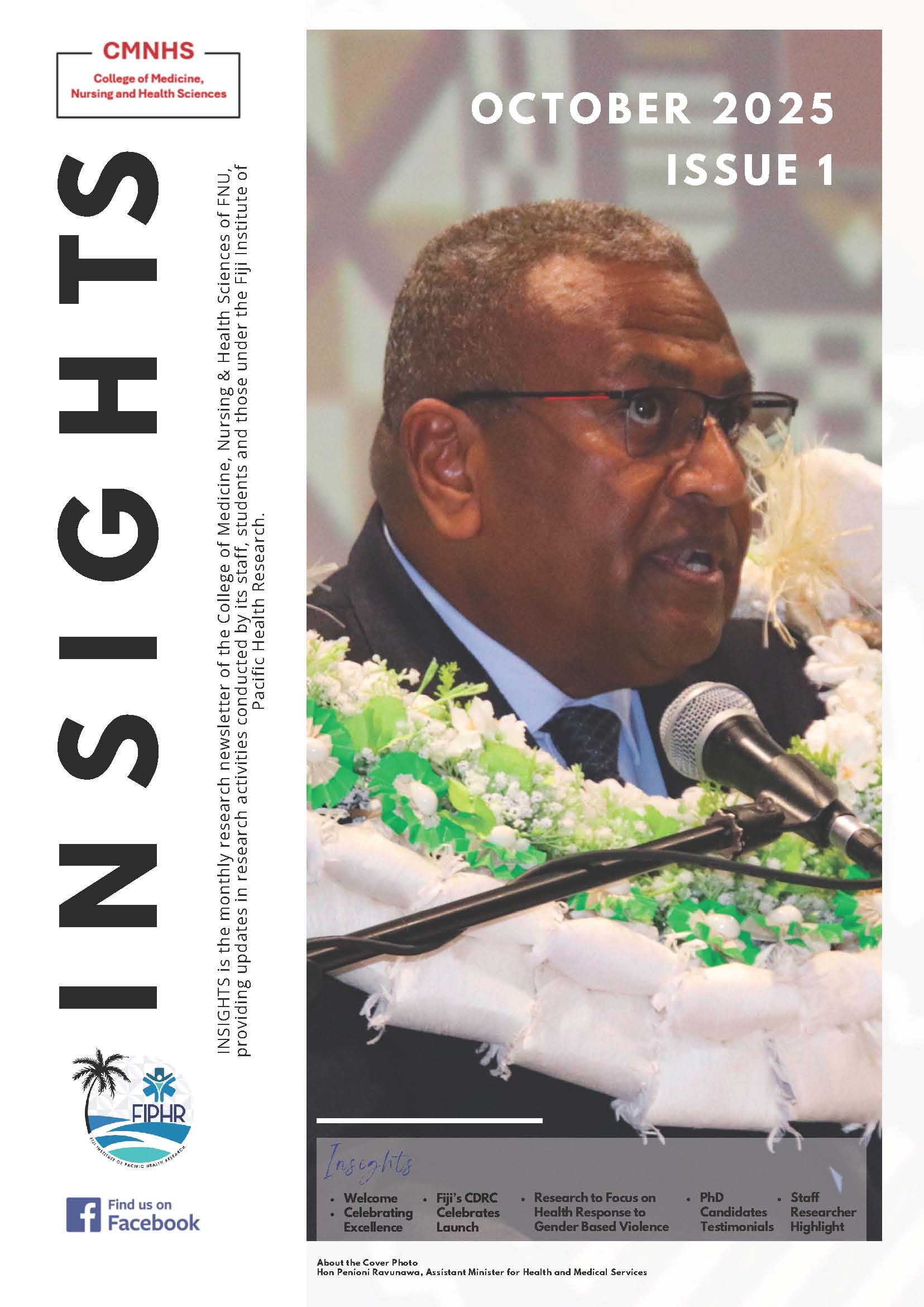 Issue 1
October 2025 |
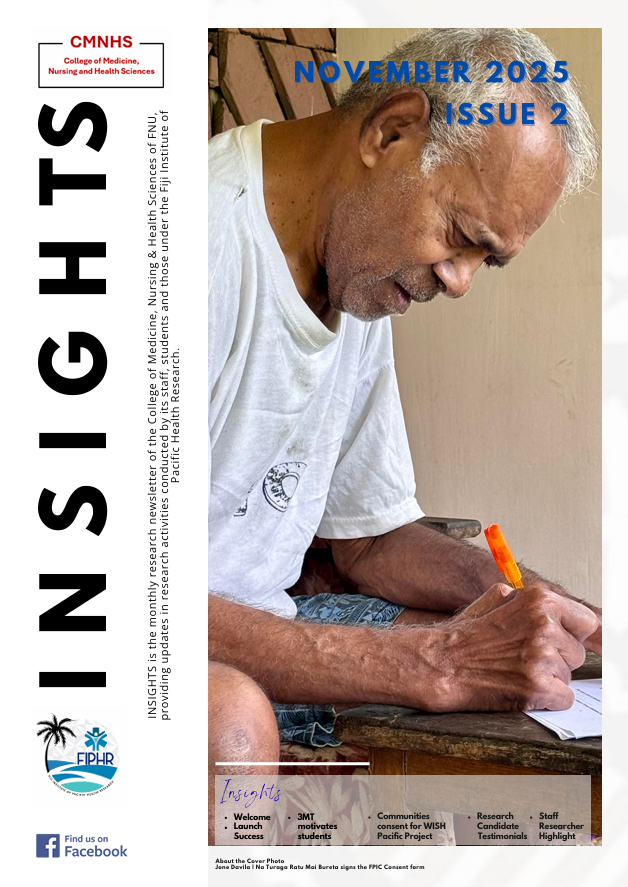 Issue 2
November 2025 |
| INSIGHTS – 2026 | |
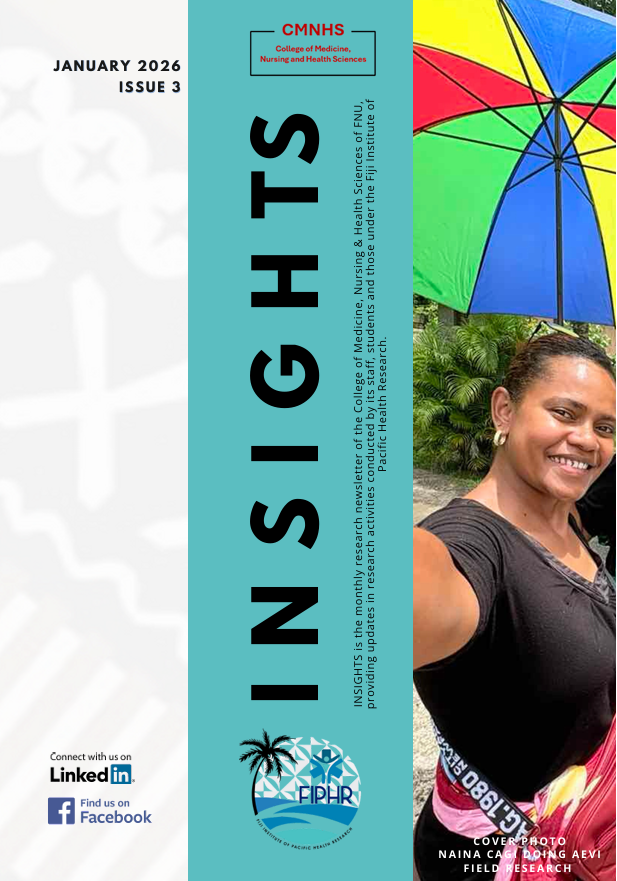 Issue 3
January 2026 |
|
The WHO Collaborating Centre for Obesity Prevention and Management is a collaborative research centre between the School of Medicine, College of Medicine, Nursing & Health Sciences, Fiji National University and Deakin University (WHO Collaborating Centre for Obesity Prevention), Melbourne, Australia which was established in 2009. Formerly, known as Centre for the Prevention of Obesity and Non-Communicable Diseases (C-POND) who received visibility and recognition by national and international authorities for its work on Non-Communicable Diseases.
The designation as WHO Collaborating Centre for Obesity Prevention and Management was officiated in 2019 by the Minister for Health and Medical Services, Dr. Ifereimi Waqanibete, who witnessed the recognition of the work of a centre that has been strong ally for the Ministry of Health and Medical Services helping to implement the mandated work and achieve its current goals.
C-POND is infact the institution in the Pacific Island Countries to receive WHO Collaborating Centre status that was a major achievement for the College of Medicine, Nursing & Health Sciences. WHO gains access to top institutions worldwide and the institutional capacity to support its work while C-POND will gain greater attention from the public and academic institutions for the health issues they work on.
WHO designated the C-POND as a WHO Collaborating Centre for Obesity Prevention and Management, to:
Collaborating Centre for Obesity Prevention and Management is situated at the Tamavua Campus in Suva, linking it closely with its teaching and training programs and supporting PhDs, Masters and post-graduate students, research projects and training programs.
VISION
Creating the evidence, knowledge exchange and research capacity needed to reverse the Non-Communicable Disease (NCD) and obesity crisis in the Pacific islands.
MISSION
Background
The Center for Health Information Policy & Systems Research (CHIPSR) was established in 2010, following the increase realization that Health Systems in the Pacific needed evidence based research to ensure the development of regional and national policies that addressed the long term sustainability of health systems, and the provision of equitable health services for the Pacific. The vision of CHIPSR was to be the most admired center of excellence in Health Systems and Health Policy in the Oceania region.
CHIPSR mandate is to perform research in human health and well-being for economically sustainable community and society and its focus is on health financing, health information, and health systems and health policy.
Purpose of CHIPSR Reference Group
CHIPSR Reference Group are intended to provide strategic direction and advice and nurture the development of CHIPSR. Reference Group is intended to be advisory and not managerial and is not expected to consider day to day management and procedural issues. It has no decision-making authority, but can make recommendations for the staff and management of the center to consider.
The purpose or role of the CHIPSR reference group are to:
Terms of membership of the CHIPSR Reference Group
Membership of the CHIPSR Reference Group carries no financial benefits, and membership is based on professional attributes of individuals, rather than their organizational affiliation or country of residence.
Reference group members are expected to be working within the Pacific Islands on health financing, health information, and health systems and health policy.
The membership of the reference group is not automatically renewed. It will be reviewed annually at the first meeting of each year (to be held in the first quarter).
The Head of CHIPSR will review membership of the reference group prior to this meeting, to check members’ compliance with the requirements. The membership of any person who no longer meets the above requirements will not be renewed. A person whose membership is withdrawn will be informed in writing by the current Reference Group chairperson and Head of CHIPSR. The letter will outline the grounds on which decision to withdraw membership were made.
Members may also withdraw at any time by indicating this in writing to the Reference Group chairperson and the Head of CHIPSR. There is no maximum timeframe for an individual’s membership of the Reference Group providing they continue to meet the above expectations of members.
Meetings
A minimum of at least two Reference Group meetings will be held per year. Where feasible, one meeting should be held face-to-face, in collaboration with a regional event likely to be attended by many of the members.
The Reference Group Chairperson will be responsible for organization of the meeting in collaboration with the Head of CHIPSR, and for informing all members of the date and arrangements for the meeting. The Head of CHIPSR will disseminate an agenda and any related documents to all members prior to the meeting. The Reference Group Chairperson will set the agenda for a meeting in discussion with the Head of CHIPSR.
The secretary and Head of CHIPSR will produce minutes for review by the Chairperson. The Chairperson will then share them with the Reference Group members for any corrections before they are finalized. At the subsequent meeting, the minutes will be endorsed/ accepted.
As the group is not a decision making body, there is no requirement for a minimum quorum for any meeting to take place. However election of the Chair of the Reference Group will require at least 75% of the members to participate. Similarly decisions on new members and renewals of Reference Group members will require at least 50% of reference group members to participate.
Members of the Reference Group may make contributions and comment via face to face meetings, teleconference or via email. Comments and input may be sought at any time from the group, by the CHIPSR team.
Chairperson of the Reference Group
The Chairperson of the Reference Group will be elected each year, at the first meeting of the year, following the review of the members of the Reference Group. All members of the Reference Group (excluding CHIPSR staff) are eligible to make nominations for the chair and to vote for the Chairperson.
The incumbent Chairperson will first call for nominations for chairperson. If there is more than one nomination, then members will be asked to vote (one vote per member). They will email their vote to the CHIPSR secretary who will total and provide response to the reference group (anonymized). The nominee with the most votes will be chairperson for the year. In the case of a face to face meeting, paper-based voting will be used.
Background
In the midst of a global pandemic, the College of Medicine, Nursing and Health Sciences (CMNHS) has established a centre that targets communicable diseases. The Communicable Disease Research Centre (CDRC) has been formed through collaboration between CMNHS and the Otago University, Global Health Institute (OGHI) with support from Mercy Hospital in Dunedin, New Zealand. The Centre will produce Pacific led world class research in communicable diseases for the Pacific region. It also aims to enhance the capacity for research training and support for student research specifically in Communicable Diseases. This includes advancing knowledge in the pathogenesis, treatment and prevention of communicable diseases in Pacific island countries. The CDRC presents an important ambition of the CMNHS to not only educate Pacific health workers, but to generate the information that guides health practices in the region.
The CDRC launched virtually on December 3, 2021, with the inauguration of its Reference Group members. The Centre presents an opportunity for the College to position itself as a regional Institution that identifies and addresses priority infectious diseases in the region, whilst also building research training, capacity and quality in coming years through collaborations with Ministries of Health, and organizations and institutes involved in infectious disease research.
Vision:
Pacific led world class infectious diseases research
Mission:
The Communicable Disease Research Centre (CDRC) will work in collaboration with partners to conduct research that addresses the most pressing infectious diseases problems of the Pacific region
Values:
Bula vinaka (wellbeing); Loma vata (harmony); Cakacaka vata (working together); Sautu (good fortune); Cakacaka vaka dodonu (ethical practice); Doudou (boldness); Uasivi (excellence)
Strategic Goals 2021-2022:
Current Project
Click here to view PASS Fiji Study page.
POPULATION BASED-AGE STRATIFIED ASSESSMENT OF SARS- Cov2 SEROPOSITIVITY IN FIJI
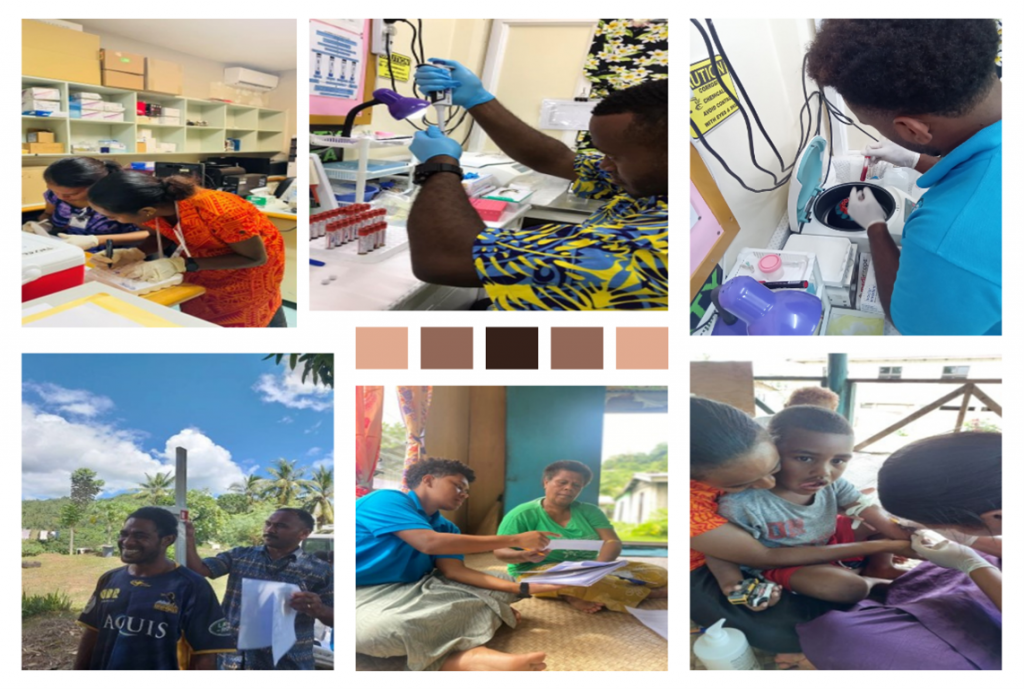
Fiji succumbed to the global COVID-19 pandemic in 2021 experiencing widespread community transmission with large waves of disease caused by different variants of the SARS-CoV2 virus that causes the disease. At the peak of COVID-19 transmission in the country, disease incidence in Fiji was amongst the highest in the world. By mid-2023 a total of 885 COVID-19 deaths had been recorded and although vaccination rates for the first two doses of COVID-19 vaccine were high, uptake of booster doses amongst high-risk groups has been variable. Although COVID-19 hospitalizations and mortality have reduced significantly since 2021 direct measures of population level immunity to the SARS-CoV2 virus are currently lacking. An understanding of population level immunity to SARS-CoV2 variants provides useful information for evaluating the impact of vaccination and informing the need for booster doses of vaccine. Serosurveys provide an opportunity to evaluate to determine exposure to specific antigens and also evaluate antibody responses to these antigens. These surveys identify a sample of the population and collect blood specimens which are then evaluated at a medical laboratory for the presence of specific markers of previous infection and of immunity.
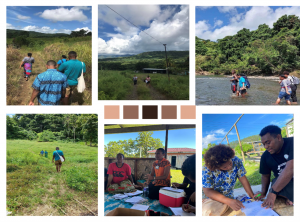
In 2022, with support from the Fiji Ministry of Health and Medical Services, the Communicable Disease Research Centre (CDRC) of the Fiji Institute of Pacific Health Research launched the Population based Age stratified assessment of SARS-CoV2 Seropositivity in Fiji Project or PASS Fiji Project (link to FNU page with launch). This project is funded by the Australian Department of Foreign Affairs and Trade (DFAT) and will directly assess population exposure and immunity to SARS-CoV2 from 2022-2024 in alignment with the WHO Unity Protocol for SARS-COV2 serosurveys. The PASS Fiji Project includes two separate research studies and the establishment of a serology laboratory for research at the College of Medicine, Nursing and Health Sciences. Technical support for the study is being provided by the University of Otago through its existing affiliation with the CDRC and also by the University of Auckland.
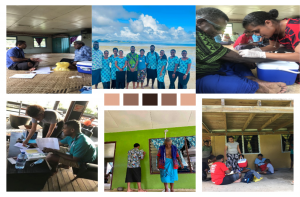
In early 2023 the PASS Fiji project began recruitment for its two research studies. The first study involves repeat cross-sectional surveys of the population examining the proportion of Fijians who test positive for previous exposure to SARS-CoV2 and, the strength of antibody responses in these. The second study involves the follow-up of people receiving booster doses of COVID-19 vaccine to determine changes in antibody responses following booster vaccination. In August 2023, the FNU Container Serology Laboratory was opened (Insert link to story/blog). This laboratory facility will be used initially for PASS Fiji studies but will enable medical laboratory research to be conducted at the Fiji National University for other staff and student research. The laboratory also provides a storage facility for biobanking of samples to enhance the research outputs of the institution. In 2024 the PASS Fiji project will release results from the first survey to provide an assessment of population level immunity to SARS-COV2 in Fiji.
PASS Fiji Study Prelim Findings Study English Final
PASS Fiji Infographic Fijian Final
PASS Fiji Infographic English Final
PASS FIJI FIELD BLOGWEBSITE English Final
Meet the CDRC Staff
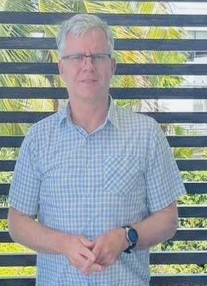
Professor Philip Hill
Adjunct Professor
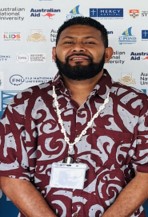
Mr. Isireli Koroituku
Research Fellow – CDRC

Dr. Anaseini Ratu
Study Coordinator – PASS Fiji Project – CDRC
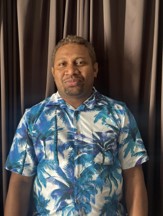
Mr. Viliame Qio
Project Manager – COVID-19 Grant

Mr. Uraia Rabuatoka
Senior Lab Technician – PASS Fiji
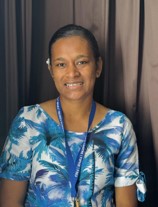
Mrs. Venina Naigulevu
Research Assistant – Pacific Health Observatory
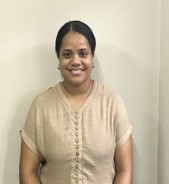
Ms. Salote Uluinabou
Research Assistant – Long-COVID Study
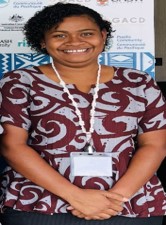
Ms. Luse Lauci
Research Assistant – PASS Fiji

Ms. Reapi Seru
Research Assistant – PASS Fiji
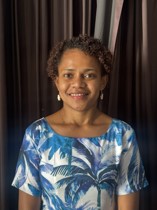
Ms. Naina Cagi
Lab Techinican – PASS Fiji

Ms. Chloe Ravunisa
Research Assistant – Long-COVID Study
The College of Medicine, Nursing & Health Sciences (CMNHS) is committed to advancing research and innovation in the medical and health sciences field. Our research initiatives focus on addressing key health challenges in the Pacific region, fostering collaboration, and driving impactful discoveries.
Effect of Heavy Kava (Sp. Piper methysticum) Consumption on Cardiometabolic Biochemical Markers and Disease in Fiji.
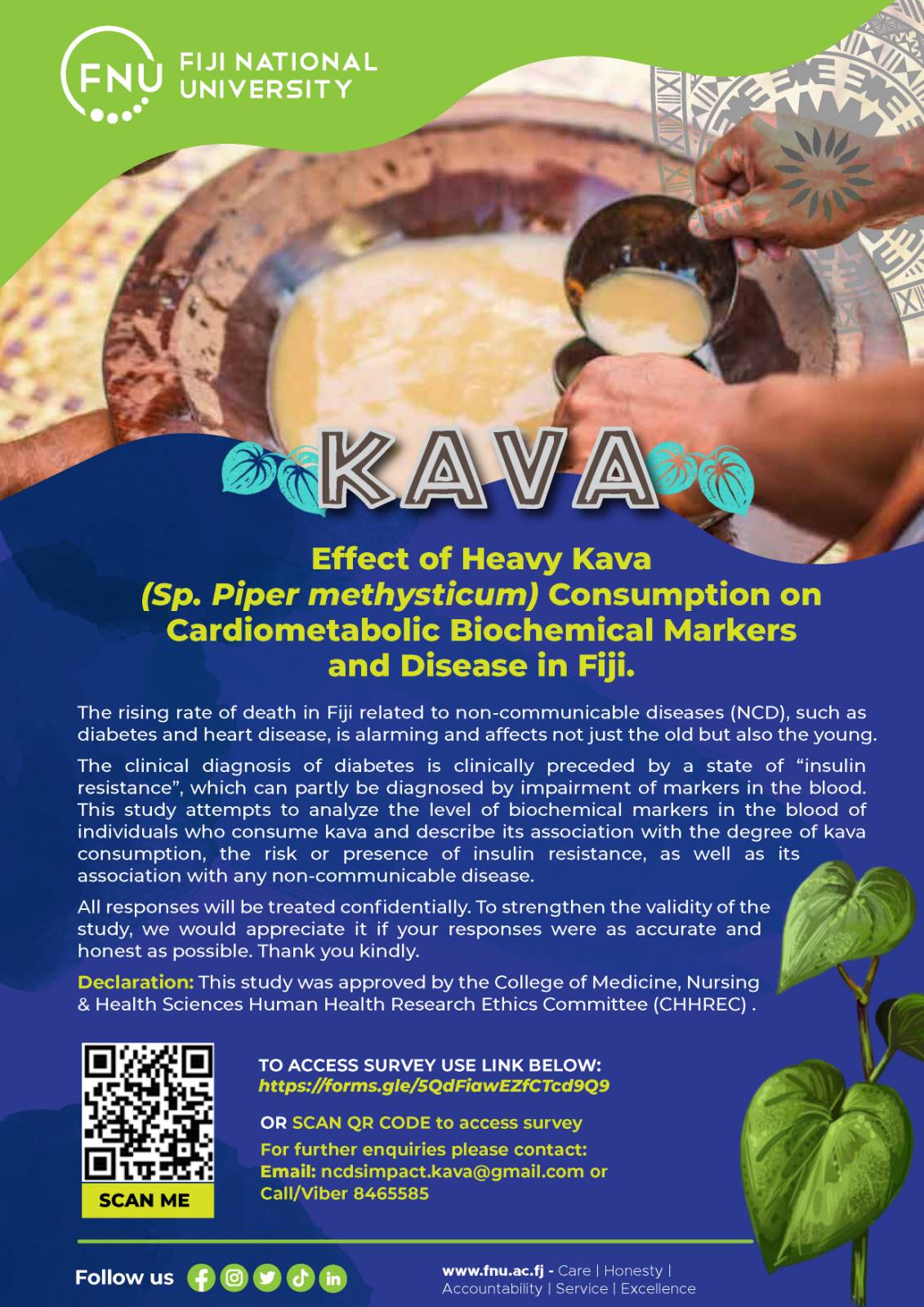
We encourage faculty, researchers, and students to contribute to our research efforts. Please take a moment to fill out our survey:
👉 Click here to access the survey form
Your input will help us improve and expand our research initiatives. Thank you for your participation!
The Pacific Sexual & Reproductive Health Research Centre (PacS-RHRC) represents a new and dynamic approach to the Sexual & Reproductive Health (SRH) research issues and challenges of the Pacific Island Countries. In keeping with the Pacific move towards integration of HIV & STI into the larger SRH agenda, PacS-RHRC, in the College of Medicine, Nursing & Health Sciences (CMNHS), Fiji National University, is dedicated to:
PacS-RHRC will fulfill its roles to the best of its ability to CMNHS, FNU and the wider Pacific Islands in several ways:
PacS-RHRC collaborating Partners
PacS-RHRC will conduct research and disseminate findings independently or work in partnership with collaborating such as academic, technical, donor, NGOs institutions, and other key stakeholders such as governments and special communities in the Pacific Islands Countries & Territories. PacS-RHRC currently enjoys the support and collaboration of a group of regional and international community, technical and academic institutions such as the United Nations Population Fund (UNFPA) through its Western Pacific Office, Suva; International Planned Parenthood (IPPF) through its Pacific Office in Suva, the Secretariat of the Pacific Community (SPC) through its Public Health Program, based in Suva, Pacific AIDS Foundation (PIAF), the Oceania Society for Sexual Health & HIV Medicine (OSSHHM), and the Women’s & Children’s Health Knowledge Hub (Crossmap) a partnership between Burnet Institute’s Centre for International Health, the Menzies School of Health Research in Darwin, and the Centre for International Child Health at the University of Melbourne. PacS-RHRC is keen to develop collaborating networks for the development and advancement of SRH research and capacity at CMNHS, FNU and the Pacific region.
PacS-RHRC Research Areas & Interests
PacS-RHRC is a Pacific regional organisation and will conduct research in the Pacific region on the following issues:
CONTACT US:
Dr Kesaia Nawaqaliva
Research Coordinator
Email: kesaia.nawaqaliva@fnu.ac.fj
For more information on what we do, access CMNHS Research online at www.fnu.ac.fj
Pacific Planetary Health Research Centre, known in our Fijian context and socialized as Tadra Vanua. The concept represents our land, our seas, our people, and our culture as an inseparable whole. Tadra, meaning ‘dream,’ joins with Vanua to express our collective dream for a healthier, more resilient future for our region and beyond.
The establishment of Tadra Vanua reflects a recognition that the time is now for the Pacific to lead the world in action-oriented research that integrates human, animal, and environmental health. This aligns with the aspirations of the Healthy Islands Vision, the Blue Pacific 2050 Strategy, SPC’s commitment to planetary health in their 10 year strategy, and the WHO Weaving Health for Families, Communities and Societies in the Western Pacific Region (2025–2029) Strategy. These global and regional mandates converge here, in the Pacific, where our political leaders have consistently called for urgent and unified action on health, climate, and the environment.
Tadra Vanua aspires to serve as a world-class research hub—a home for Pacific-led, place-based, interdisciplinary research and action. It will build on existing successes, such as the RISE and WISH projects, and will leverage partnerships with key regional and international stakeholders. This hub will unite the research capacities of the Fiji Institute of Pacific Health Research and other FNU centres, while working alongside institutions like the Pacific Community, the World Health Organization, and leading universities from Australia, New Zealand, and the national government.
Crucially, Tadra Vanua will not simply generate knowledge; it will drive action. It will work hand in hand with Pacific communities, governments, and civil society, ensuring that research translates into real-world solutions that prioritize the most vulnerable and safeguard our ecosystems and traditions.
Our vision is bold and long-term: a 10-year pathway with an initial five-year growth and proof-of-concept phase.
The objectives are clear:
Through this work, Tadra Vanua will position the Pacific as a global exemplar of integrative solutions to the health and environmental crises of our time. It can amplify our voices on the international stage, demonstrating that we are not merely vulnerable islands but innovative leaders driving transformative change.
The Watershed Interventions for Systems Health in Fiji- WISH Fiji
Background:
The condition of ecological watersheds affects the health of people and the downstream environments in which they live. Higher incidences of water-related bacterial diseases like typhoid and leptospirosis occur within watersheds that have large tracts of cleared land and higher densities of livestock accessing waterways. In addition, watershed alterations that promote flooding and standing water can accelerate mosquito-borne dengue transmission within rural communities. These same activities increase the amounts of sediments and nutrients entering waterways, with devastating impacts on freshwater and coastal coral reef ecosystems and thus the food, livelihoods and cultural practices of local people. Targeted watershed interventions and water management practices reduce water-related disease risk, improve downstream ecosystem condition and support overall system health.
Purpose:
The Watershed Interventions for Systems Health in Fiji (WISH Fiji) project embraces this integrated approach, working with national and local government, rural communities and the commercial sector to reduce infection risk and improve health and well-being within five river sub-catchments areas in Fiji. We are transforming action from reactive to preventative, improving the ability of integrated systems to predict, prevent, respond and recover from water-related infectious diseases and natural disasters.
Aim:
Scope of work:
The research works in the sub-catchments of Dawasamu, Waibula, Upper Navua, Bureta and Dama to:
Partners:
WISH Fiji is collaboration between the University of Sydney, Edith Cowan University, Fiji National University, and the Wildlife Conservation Society, in partnership with the Fiji Ministry of Health and Medical Services, Water Authority of Fiji, Pacific Community, UNICEF and World Health Organization.
Link to Official Website: https://wishfiji.sydney.edu.au/
Revitalising Informal Settlements and their Environments (RISE)
Background
RISE is a transdisciplinary research program working at the intersections of health, environment, and water and sanitation. RISE is trialling a new water sensitive approach to water and sanitation management in 24 informal settlements across Makassar, Indonesia and Suva, Fiji. Working with communities, governments, local leaders and partner institutions, RISE is co-designing location-specific solutions that integrate green infrastructure, such as constructed wetlands, to strengthen the whole-of-life water and sanitation cycle. Underpinned by the emerging discipline of ‘planetary health’, RISE success will be measured by the health and well-being of residents – particularly children under five years of age – and the ecological diversity of the surrounding environment.
Vision
Our vision is to transform human and environmental health in urban informal settlements through water-sensitive revitalisation.
Objectives
RISE aims to enable these communities to:
Benefits:
We anticipate multiple benefits:
Scope of work:
Working with communities, governments, local leaders and partner institutions, RISE aims to demonstrate that nature-based solutions – such as wetlands and bio-filtration gardens – can deliver sustainable, cost-effective health and environmental improvements for those living in informal settlements.
RISE is conducting a randomised control trial (RCT) involving 12 informal settlements in Suva, Fiji and 12 in Makassar, Indonesia. In the first phase of the trial, six settlements in each country are undergoing a water and sanitation upgrade. The impacts of the upgrades on the health of the environment and the health of the communities will be monitored, and compared against the other six settlements in each country.
In the second phase of the trial, the other six settlements in each country will be upgraded.
Partners:
RISE is led by the Monash Sustainable Development Institute, and brings expertise from across six Monash faculties: Art, Design and Architecture; Science; Medicine, Nursing and Health Sciences; Engineering; Business and Economics; and Law.
The Wellcome Trust provides core funding for the research components of RISE. The New Zealand Ministry of Foreign Affairs and Trade funds the infrastructure intervention in Fiji, and the Australian Department of Foreign Affairs and Trade funds the infrastructure intervention in Indonesia.
In Fiji, the RISE intervention is led by the Ministry of Housing and Community Development and the Water Authority of Fiji, and the research is led by Fiji National University, with support from the University of the South Pacific. Live & Learn Environmental Education implements the RISE Fiji program across both the intervention and research.
Link to Official RISE website https://www.rise-program.org/about#
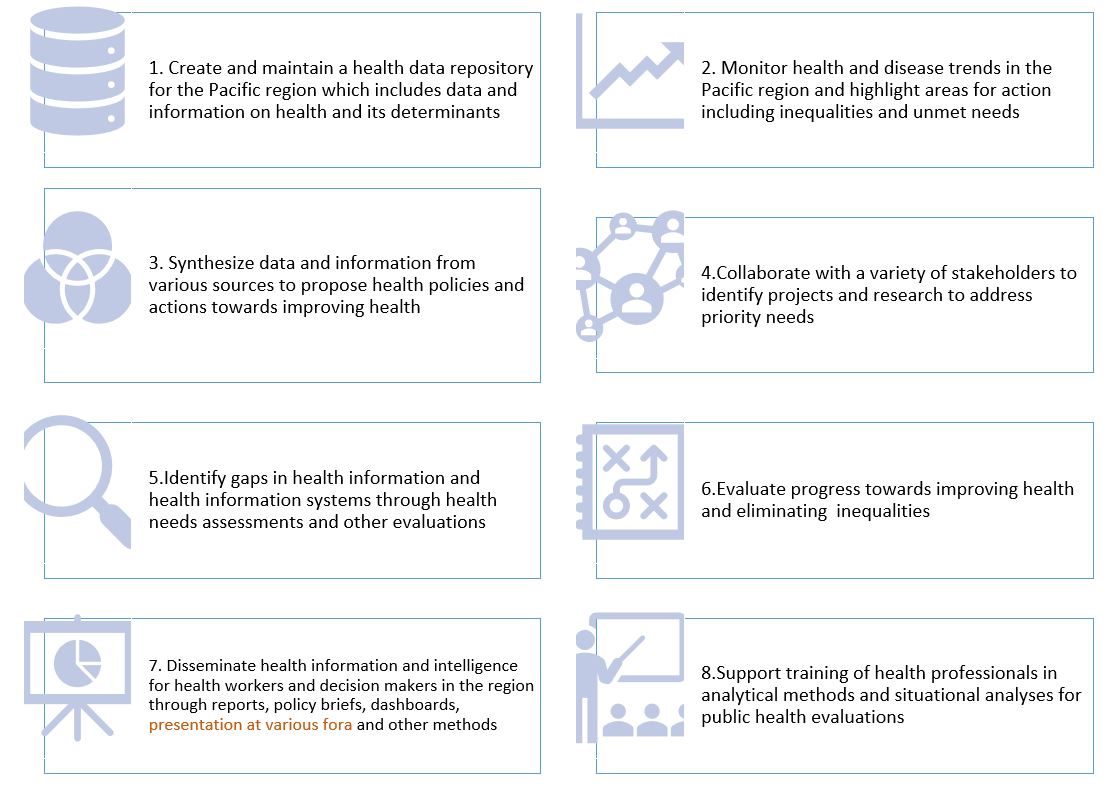
Background
The Pacific Islands Health Research Symposium (PIHRS) is an annual conference of Pacific health researchers where they meet to present their research on Pacific health issues and challenges. It was first launched in 2011 to provide a platform for staff and students to showcase their research. Today, the PIHRS has become an annual event for the College of Medicine Nursing and Health Sciences (CMNHS), Fiji National University (FNU).
The FNU has continued to embark on efforts and strategies to strengthen the research capacity and profile of its academic staff and students at all the CMNHS. Examples of such strategies are the creation of research portfolios such as the Pro-Vice Chancellor Research (PVCR) and the College Associate Deans of Research (ADRs). Research is increasingly becoming an important aspect of the FNU, and events such as the PIHRS are encouraging our staff and students to engage in research and present their research findings in a larger forum.
Aim of PIHRS
The PIHRS aims to offer a platform for presenting research, research ideas, and methodologies and sharing knowledge. It is hoped that some of these will provide critical challenges and open new spaces for further research that can impact aspects of health care and health services delivery.
PIHRS 2025 Conference Announcement
The 2025 PIHRS – Save the Dates Flyer is in circulation, and the dates are 10th – 12th September 2025.
We look forward to receiving your abstract(s) if you have something to share at the PIHRS 2025!
Sub-Themes
Symposium Date & Time
Call for Abstract:
Registration
Continuing Professional Development (CPD) Points
Continuing Professional Development Certificates will be provided to all registered participants, at a rate of roughly two (2) CPD points per hour of presentations attended, equivalent to 10 CPD points for a whole day’s attendance. This equates to 30 CPD points for the full 3-day attendance.
The PIHRS 2025 brings you a unique experience with speeches from renowned speakers, best presentations, roundtable discussions, networking opportunities and many more.
Click here to view the 2025 program.
| CLICK HERE TO REGISTER FOR PACIFIC ISLANDS HEALTH RESEARCH SYMPOSIUM 2025 | ||
| CLICK HERE TO DOWNLOAD PIHRS INFORMATION PACKAGE 2025 | CLICK HERE TO VIEW PIHRS ABSTRACT SUBMISSION GUIDELINES 2025 | CLICK HERE TO VIEW PIHRS ABSTRACT SUBMISSION FORM 2025 |
Click here for information on PIHRS Information Package 2025
Please consider the following guidelines, information, tips, terms, and deadlines to facilitate the submission and subsequent follow-up process.
Abstract Guidelines Structure
Steps to follow for your Abstract Submission
Once you have prepared your abstract according to the above guidelines,
Abstract Submission Deadline
Double Blind Peer Reviewing Process
2025 PIHRS Abstract Template for Oral Presentations
Title
Authors listing: (Presenting Author in bold)
Institutional Affiliation and email address (es)
Introduction: Previous research and/or rationale for performing the study. Include aim and Objective of the study if applicable.
Method: Adequate description of the type of study, study sample and statistical methods used.
Results: Summary of findings, description of analysis, and interpretation of findings.
Discussion: Limitations of the study, implications of the results, and further work.
Word Count: (indicate number of words: should not Exceed 250 words)
Instructions: (Delete this section before submission)
If your question is not answered below, please get in touch with the PIHRS Secretariat at PIHRS@fnu.ac.fj.
1. What is a conference?
A conference is a meeting, often lasting for a few days, organised on a particular subject or to bring together participants with a common interest. Participants will participate in or attend the PIHRS conference face-to-face and use this platform to present research, research ideas, and methodologies and share knowledge. It is hoped that some of these will address critical challenges and open new spaces for further research that can impact aspects of health care and health services delivery.
2. When is PIHRS 2025?
The PIHRS Conference will be held on the 10th – 12th September 2025. All conference sessions will be based on Fiji Time. There will be recorded presentations for speakers, and a Zoom meeting will be organised for speakers who cannot attend physically.
3. Who should attend?
The PIHRS conference welcomes local and international academics, donors, government ministries, non-governmental organisations (NGOs), technical agencies, the Private Sector, students, and anyone passionate about the theme: “Celebrating Research Excellence in the Pacific”.
4. How do I register for PIHRS 2025?
Registration for the 2025 PIHRS Conference has opened. For online registration, please click here.
5. What happens once I register?
Once you register online, you will receive an email confirmation with detailed instructions on payment of the registration fee, with the invoice generated and sent to your email. Please kindly retain a copy of your payment receipt once you have paid the registration fee.
6. How much do I need to pay to register for the conference?
The conference registration fee is in Fiji Dollars that covers morning tea, lunch and afternoon tea and can be viewed here.
7. Is there funding available to participate in the conference?
Funding is not available for this conference.
8. Where/How can I claim Continuing Professional Development (CDP) credit points?
Registrants can claim Continuing Professional Development (CPD) points, and participation certificates, and provide feedback by email to the Secretariat here PIHRS@fnu.ac.fjr
Click here to view the 2025 program.
Attention, all health researchers and enthusiasts!
We are thrilled to announce that the CALL FOR ABSTRACTS for the 2025 Pacific Island Health Research Symposium is now open!
This year’s theme is “Celebrating Research Excellence in the Pacific”, and we cannot wait to hear your innovative ideas and research findings.
Abstract submissions close on 23rd August, 2025. Don’t miss this opportunity to showcase your work.
For more information, email us at PIHRS@fnu.ac.fj
Click Here to View 2023 Proceedings Report.
Below are list of publication release by our research in respective years
Melissa M, Boyd Swinburn, Jillian Wate, Isimeli Tukana, Gary Sack (2016). The Fijian Government has established a partnership with the Fiji Food Industry Group to help combat and reduce Non communicable diseases: influence of the food industry on public health policies and outcomes in Fiji”. Globalization and Health. 12: 18; doi: 10.1186/s12992-016-0158-8
1.0 Background
The COVID-19 pandemic is ongoing and still unpredictable given the continued emergence of variants and widespread relaxation of public health measures. In addition, recent evidence on the waning effect of COVID-19 vaccines and continued vaccine resistance in the Pacific mean that Pacific populations will continue to remain vulnerable to future wave of disease. In June 2021, DFAT endorsed a funding agreement to support the implementation of the activity “FNU CMNHS COVID-19 Response, under the College’s Pacific Regional strategy.
The main purpose of the strategy and the funding is to enable the FNU through CMNHS to deliver relevant COVID-19 related and accredited academic programs, short trainings and conduct COVID-19 related research in Fiji and the region. DFAT’s support will assist the College’s regional response to COVID-19 as well as prepare it for future pandemics; and will significantly assist the institution to respond to the health training and research needs of the region during COVID-19. Under Grant 1, the CMNHS will be able to address the emerging training needs of the region with regards to the disease, and its management in Pacific settings. In addition, the College will identify challenges specific to learning and teaching during a global pandemic and create learning systems that are pandemic resilient. Funding of staff research projects in COVID-19 will stimulate the growth of Pacific based health research and provide knowledge on the impact of COVID-19 in Pacific health care settings. Grant 2 will provide direct funding to build and enhance Pacific driven research in COVID-9 through the establishment of a dedicated facility for laboratory-based communicable disease research at the CMNHS. Through this grant, serological surveys of the Fijian population will directly inform COVID-19 interventions for the country, specifically the need and timing of vaccine boosters and, possibly similar surveys throughout the region.
2.0 Key Objectives
The DFAT aid program has provided core budget support to CMNHS for many years. The DFAT funding is aligned with the key objectives of the FNU CMNHS Regional Response Strategy, primarily focused on enhancing the capacity of the CMNHS to: –
3.0 Key Outcomes
There are four key outcomes for the project, two of which are related to Learning and Teaching at the College (Outcomes 1 & 2) while the remaining two (Outcomes 3B, and 4) are research based. Outcomes 1, 2, 3B and 4 are projects based at CMNHS. FNU CMNHS Regional COVID-19 Response comprises of Outcome 1, 2, 3B and 4:
FNU CMNHS & Fiji MHMS Impact Study: (COVID-19 Population based age-stratified assessment of SARS-CoV-2 seropositivity in Fiji (PASS Fiji), 2022-2024). The FNU CMNHS/FIJI MHMS comprises of Outcome 3A:
4.0 Implementing Team
(i) Governance
The Project Advisory Group (PAG) is the overall governance mechanism for the project. Annual meetings will be convened to review and endorse work plans and review progress of activity implemented to ensure the program activities remain relevant to learning and teaching and research study. Quality assurance will be discussed through technical expert advice and oversight on the implementation of the project and support the monitoring the progress activities towards completion.
The Technical Advisory Group and the Steering Committee will provide technical guidance oversight and support to progress study activities towards completion for the COVID-19 Population based age-stratified assessment of SARS-CoV-2 seropositivity in Fiji (PASS Fiji), 2022-2024
(ii) FNU CMNHS Regional COVID-19 Response
The team consist of support and technical staff for the following:-
Grant 1: Project Admin Officer, Senior Research Officer – CDRC; Research Coordinator – PHO, Research Assistant and temporary staff for the 2 studies: Research Officer – LIFCO-DP, and Research Coordinators, Research Assistant, Data Assistant and transcribers for the 4 country Health Care Workers study.
Grant 2: Study Coordinator and Senior Project Officer and temporary staff for the study (Data Manager, Research Assistant, Laboratory Technicians, Nurses and Phlebotomist).
5.0 Partners:
The ‘FNU CMNHS REGIONAL COVID-19 RESPONSE’ is funded by the Commonwealth of Australia, Department of Foreign Affairs and Trade(DFAT) in partnership with the College of Medicine, Nursing and Health Sciences (CMNHS), Fiji National University (FNU).